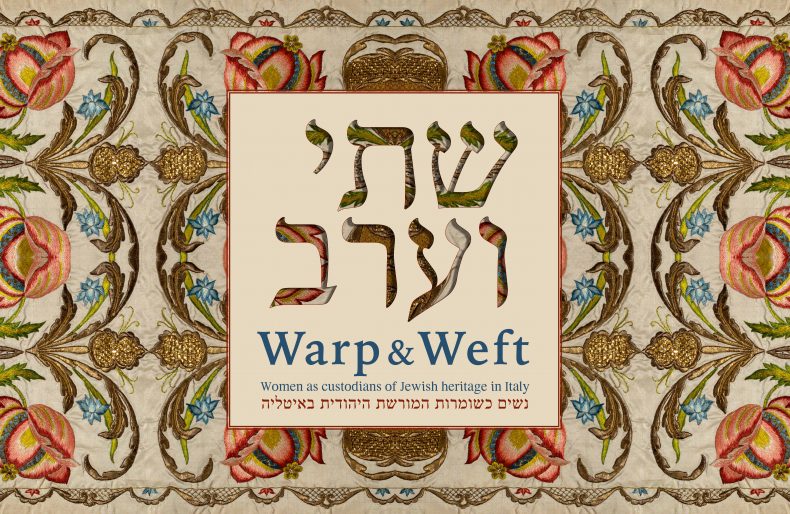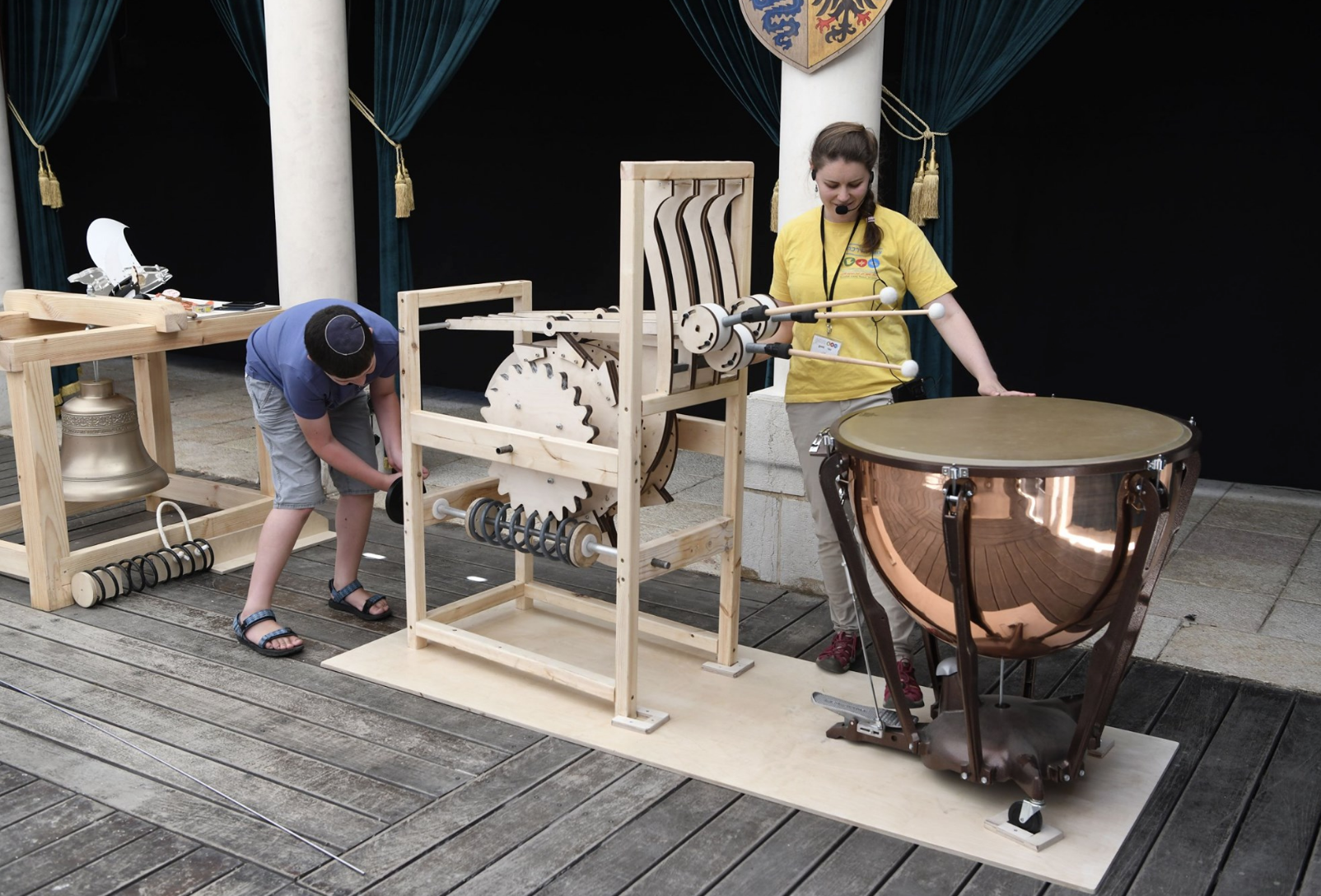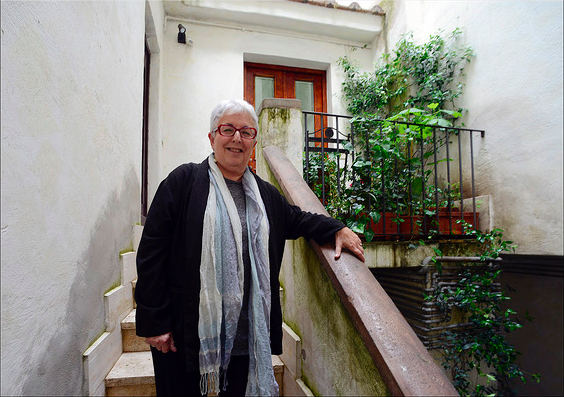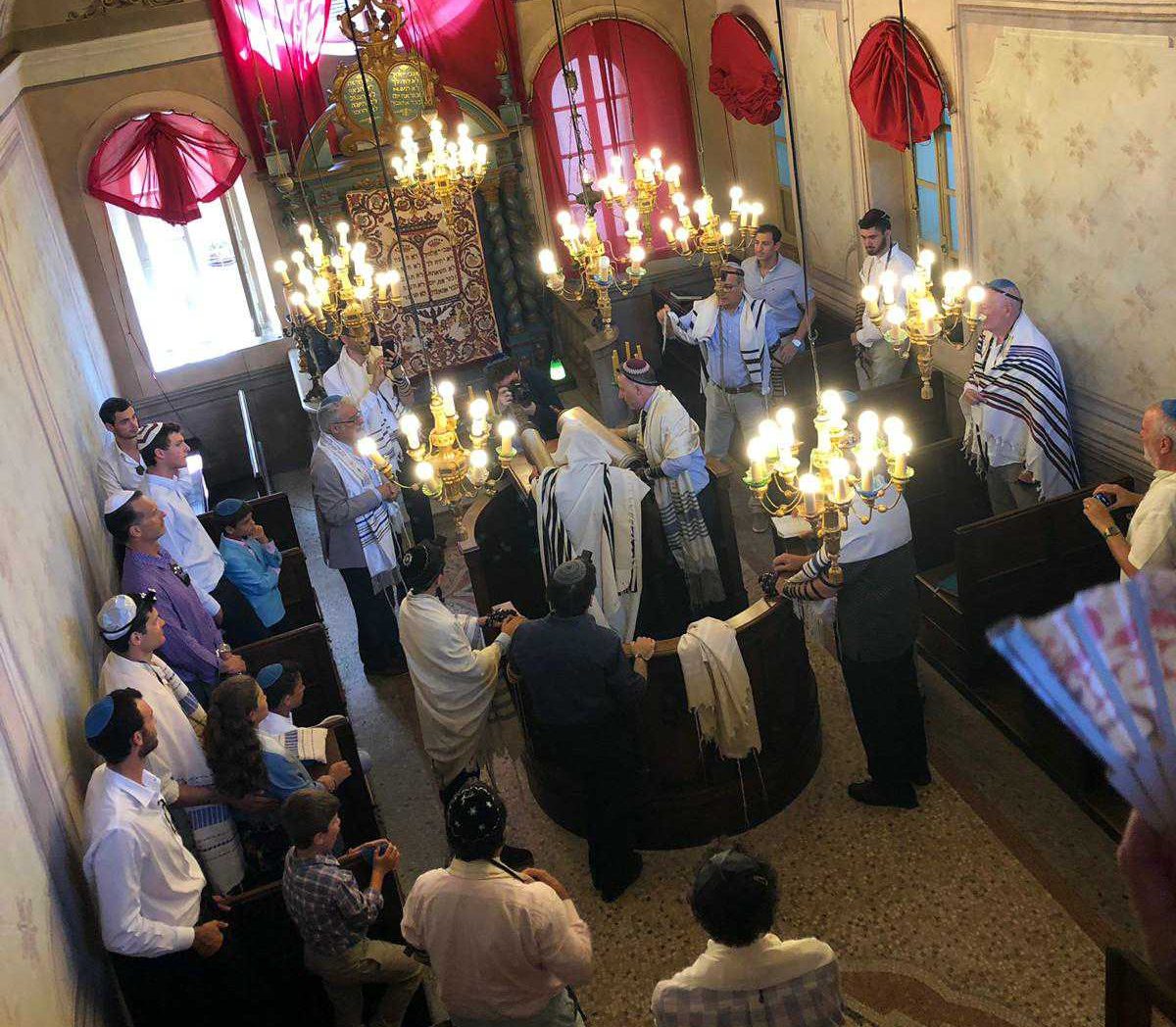Having trouble viewing this email? Click here


|
culture The Jewish Italian community:  By Daniel Reichel* “It all started out with a question: did Italian Jewish women just take care of their house and their children, however important it was, or did their role entail something more? The answer is, yes, women’s role in the Italian Judaism is as varied and complex as the weft of a piece of fabric”. It was this question which inspired the exhibition Warp and weft – women as custodians of Jewish heritage in Italy, inaugurated at the U. Nahon Museum of Italian Jewish Art in Jerusalem and curated by Anastazja Buttitta. She explained to Pagine Ebraiche that her exhibition is intentionally meant to “pay a tribute to the current exhibition at the Uffizi Gallery in Florence, The colours of Judaism in Italy, and to its curator, Dora Liscia Bemporad, who is also my mentor”. Precious fabrics from the Nahon Museum collection, dating back to the 16th-20th century, tell us the story of the complex role of women within the Italian Jewish society. *Translated by Sara Facelli, with the help of Claudia Azzalini, both students at the Advanced School for Interpreters and Translators of Trieste University and interns at the newspaper office of the Union of the Italian Jewish Communities. |
|
news Biella, a special Bar Mitzvah
By Pagine Ebraiche staff |
|
exhibitions Leonardo da Vinci on display in Jerusalem  By Pagine Ebraiche staff* By Pagine Ebraiche staff*An exhibition devoted to the 500th anniversary of Leonardo da Vinci’s death was inaugurated at the Bloomfield Science Museum in Jerusalem on July 4. “The continuous and extensive research, the meticulous method, and the craving for knowledge which has no taboo and defies every preconception: these are just few of his teachings that today, after 500 years, we still treasure,” Italian ambassador to Israel Gianluigi Benedetti said on the occasion. “Although Leonardo’s heritage has universal value, we Italians feel very proud of his roots. To be here today, praising his wit, is important in two ways as this year diplomatic relationships between Italy and Israel turn 70. Seventy years rich in cooperation, dialogue and mutual enrichment is a strong bond confirmed by this momentous event,” he added. |
|
bechol
lashon - español Génova, refugiados 
Anna Foa* |
pilpul Hiding and Revealing 
By Yaakov Mascetti* |
|
ITALICS Celebrating Sabbath with Iran's  By Jan Schneider* By Jan Schneider*It is Friday evening and a Jewish family's preparations for the Sabbath, the holiest day of the week, are in full swing. In the living room, everyone has gathered around the big table for the traditional celebration as tantalizing aromas of hot food drift through from the kitchen. The youngest son breaks the unsalted bread, then reads from the Tanakh as his father pours the obligatory glass of red wine to be passed around the table. Although it may look very like the kind of typical scene to be found in thousands of households across Israel every weekend, there is one important difference here. This one is happening in Iran. The last rays of winter sunshine are just dipping out of sight behind the Alborz mountains on this cold January day in Tehran. It is the last day of the week, which in Iran begins on Saturday. There are no major buildings — and certainly none of a religious nature — to punctuate the skyline in this part of town, with its plethora of small kiosks and supermarkets. *The article was published in DW on July 13, 2019. |
 |


This
newsletter is published under difficult conditions. The editors of this
newsletter are Italian journalists whose native language is Italian.
They are willing to offer their energy and their skills to give
international readers the opportunity of learning more about the
Italian Jewish world, its values, its culture and its traditions.
In spite of all our efforts to avoid this, readers may find an
occasional language mistake. We count on your understanding and on your
help and advice to correct these mistakes and improve our publication.
Pagine Ebraiche International Edition is published by the Union of
Italian Jewish Communities (UCEI). UCEI publications encourage an
understanding of the Jewish world and the debate within it. The
articles and opinions published by Pagine Ebraiche International
Edition, unless expressly stated otherwise, cannot be interpreted as
the official position of UCEI, but only as the self-expression of the
people who sign them, offering their comments to UCEI publications.
Readers who are interested in making their own contribution should
email us at desk@ucei.it
You received this newsletter because you authorized UCEI to contact
you. If you would like to remove your email address from our list, or
if you would like to subscribe using a new email address, please send a
blank email to desk@ucei.it
stating "unsubscribe" or "subscribe" in the subject field.
© UCEI - All rights reserved - The articles may only be reproduced
after obtaining the written permission of the editor-in-chief. Pagine
Ebraiche - Reg Rome Court 199/2009 – Editor in Chief: Guido Vitale.
Special thanks to: Francesco Moises Bassano, Susanna Barki, Amanda
Benjamin, Monica Bizzio, Angelica Edna Calò Livne, Eliezer Di Martino,
Alain Elkann, Dori Fleekop, Daniela Fubini, Benedetta Guetta, Sarah
Kaminski, Daniel Leisawitz, Annette Leckart, Gadi Luzzatto Voghera,
Yaakov Mascetti, Francesca Matalon, Jonathan Misrachi, Anna Momigliano,
Giovanni Montenero, Elèna Mortara, Sabina Muccigrosso, Lisa Palmieri
Billig, Jazmine Pignatello, Shirley Piperno, Giandomenico Pozzi, Daniel
Reichel, Colby Robbins, Danielle Rockman, Lindsay Shedlin,
Michael Sierra, Rachel Silvera, Adam Smulevich, Simone Somekh, Rossella
Tercatin, Ada Treves, Lauren Waldman, Sahar Zivan.
Questo notiziario è realizzato in condizioni di particolare difficoltà.
I redattori di questo notiziario sono giornalisti italiani di
madrelingua italiana. Mettono a disposizione le loro energie e le loro
competenze per raccontare in lingua inglese l'ebraismo italiano, i suoi
valori, la sua cultura e i suoi valori. Nonostante il nostro impegno il
lettore potrebbe trovare errori e imperfezioni nell'utilizzo del
linguaggio che faremo del nostro meglio per evitare. Contiamo sulla
vostra comprensione e soprattutto sul vostro aiuto e sul vostro
consiglio per correggere gli errori e migliorare.
Pagine Ebraiche International Edition è una pubblicazione edita
dall'Unione delle Comunità Ebraiche Italiane. L'UCEI sviluppa mezzi di
comunicazione che incoraggiano la conoscenza e il confronto delle
realtà ebraiche. Gli articoli e i commenti pubblicati, a meno che non
sia espressamente indicato il contrario, non possono essere intesi come
una presa di posizione ufficiale, ma solo come la autonoma espressione
delle persone che li firmano e che si sono rese gratuitamente
disponibili. Gli utenti che fossero interessati a offrire un proprio
contributo possono rivolgersi all'indirizzo desk@ucei.it
Avete ricevuto questo messaggio perché avete trasmesso a Ucei
l'autorizzazione a comunicare con voi. Se non desiderate ricevere
ulteriori comunicazioni o se volete comunicare un nuovo indirizzo
email, scrivete a: desk@ucei.it
indicando nell'oggetto del messaggio "cancella" o "modifica".
© UCEI - Tutti i diritti riservati - I testi possono essere riprodotti
solo dopo aver ottenuto l'autorizzazione scritta della Direzione.
Pagine Ebraiche International Edition - notiziario dell'ebraismo
italiano - Reg. Tribunale di Roma 199/2009 - direttore responsabile:
Guido Vitale.
Realizzato con il contributo di: Francesco Moises Bassano, Susanna
Barki, Amanda Benjamin, Monica Bizzio, Angelica Edna Calò Livne,
Eliezer Di Martino, Alain Elkann, Dori Fleekop, Daniela Fubini,
Benedetta Guetta, Sarah Kaminski, Daniel Leisawitz, Annette Leckart,
Gadi Luzzatto Voghera, Yaakov Mascetti, Francesca Matalon, Jonathan
Misrachi, Anna Momigliano, Giovanni Montenero, Elèna Mortara, Sabina
Muccigrosso, Lisa Palmieri Billig, Jazmine Pignatello, Shirley Piperno,
Giandomenico Pozzi, Daniel Reichel, Colby Robbins, Danielle
Rockman, Lindsay Shedlin, Michael Sierra, Rachel Silvera, Adam
Smulevich, Simone Somekh, Rossella Tercatin, Ada Treves, Lauren
Waldman, Sahar Zivan.
